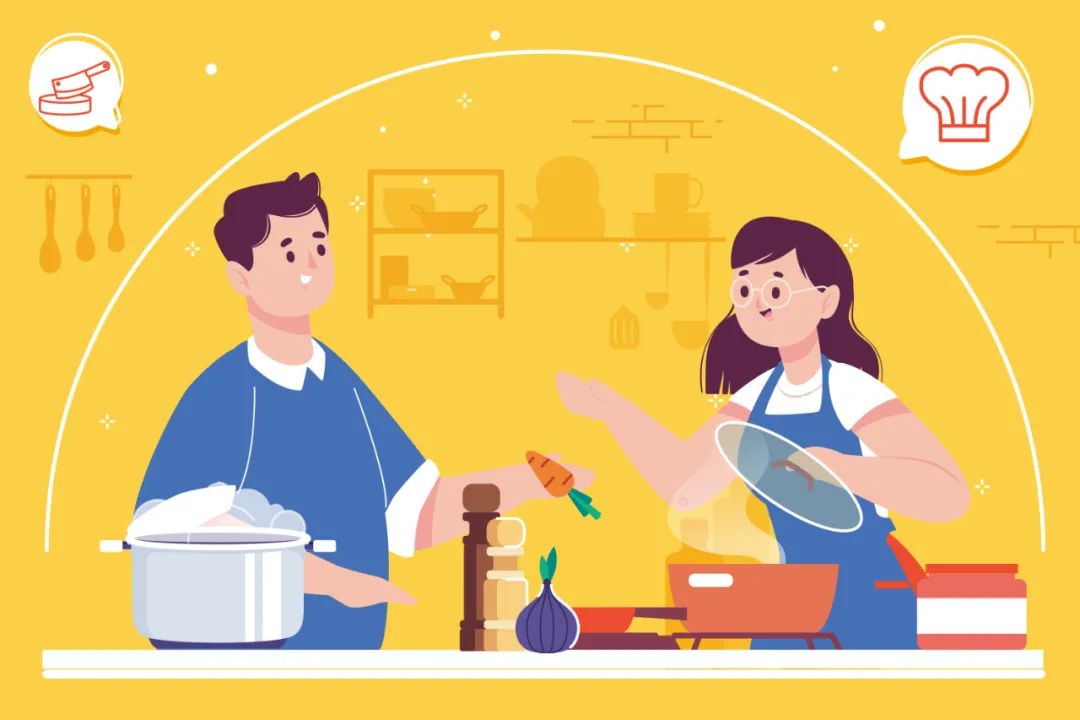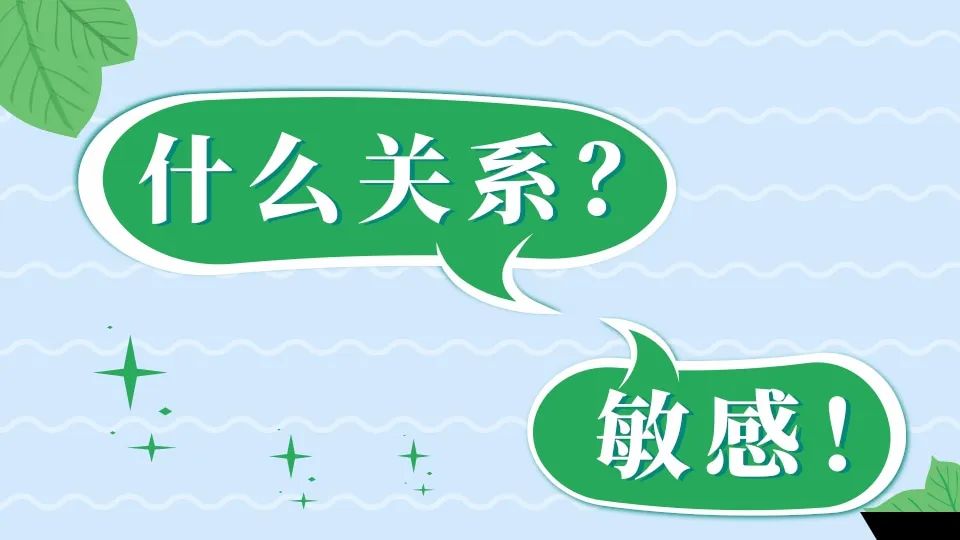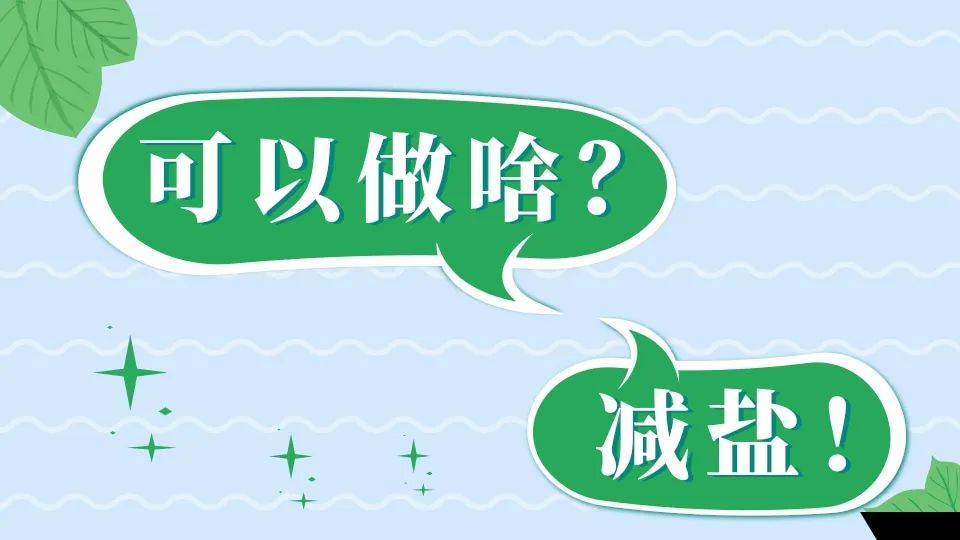How much to eat salt is related to your blood vessel health!
Author:Healthy China Time:2022.07.12
In summer, more and more "heavy taste" foods, such as spicy, crayfish, incense pots, barbecue, etc., are widely welcomed. The preference for "heavy taste" has become the norm of diet for many people, especially young people.

The "heavy taste" is mainly to eat too salty, and the amount of salt (sodium chloride) in food is relatively high. The survey shows that the salt amount in the northern region of my country is 16-18 grams per day, and the salt amount in Shanghai is 10-12 grams per day, which is lower in Guangdong. The incidence of hypertension corresponding to it also shows the trend of "north high and south" with the level of salt.
It can be seen that there is a very close relationship between sodium salt and hypertension. How much to eat salt is about blood vessel health.

There are many types of hypertension, one of which is called salt sensitivity hypertension. Many people get salt sensitivity hypertension, which is not only related to the intake of sodium in daily life, but also to our growth genes.
For people, salt is actually indispensable. Sodium in salt is the essential element of the human body. Therefore, there is a mechanism to keep salt -sodium in our genes.
However, some people are overwhelming sodium, and the sodium does not go out. As soon as they eat salty things, blood pressure will rise. In the overall population, the incidence of salt sensitivity hypertension is 15%to 42%. Among people who have suffered from hypertension, salt sensitivity high blood pressure accounts for 70%.
How do you know if you are a patient with salt sensitivity hypertension? You can do an acute salt load test.

If the increase in blood pressure and the sum of the decline reached 15 mm Hg, it means that you are salt sensitivity hypertension. In other words, if you eat too salty, the possibility of hypertension is much higher than that of ordinary people.

How does sodium salt rise blood pressure?
First of all, blood pressure is the pressure of blood on the blood vessel wall. The amount of blood in the blood vessels increases, the pressure on the blood vessel wall increases, and the blood pressure will increase, and sodium salt can increase the content of water in the blood, resulting in increased total blood. For example, if you open a salt can in the air, after a while, the salt inside will be tide, because salt can lock the water in the air. This is also the case in the blood. After people eat more salt, the blood capacity will increase, resulting in increased blood pressure. This is called water sodium retention.
Secondly, after the water sodium sodium is left, the human body will start a special mechanism to help the body discharge the water and sodium left. In this process, there will be some sodium row hormones, such as endogenous ocean yellow matter. While excretion of water and sodium, they will increase the resistance of peripheral blood vessels and cause blood pressure to rise. In addition, sodium can also activate some hormones, such as vascular tension, which can also shrink blood vessels. As a result, it is also increased blood pressure.
Finally, sodium can also activate some nerves of the human body, such as sympathetic nerves. This is the nerve that is excited when people are excited. When people are excited, will blood pressure rise?
Therefore, from blood capacity to nerve endocrine, sodium salt can promote increased blood pressure. Today, the incidence of hypertension is still high, and the prevalence of the hypertension of the overall population must be reduced. Restricting the amount of salt is the most urgent measure.


What effect does salt be restricted?
If you eat 2 grams of salt less a day, human systolic blood pressure can be reduced by 2 mm Hg, and the diastolic pressure can be reduced by 1 mm Hg.
Don't underestimate these 2mm Hg or 1 mm Hg. Many large clinical experiments show that the incidence of stroke and myocardial infarction will be reduced a lot. Although it is best to control the amount of salt at now, it is best to control 5 grams per day, many people's intake is still 10-12 grams per day. In other words, it is necessary to reduce 6 grams. This can be reduced by 6 mm Hg. The diastolic pressure can decrease by 3 mm Hg, which is really worth it.

What can we do ourselves?
First of all, don't taste so heavy, eat less pickled food and condiments. What if you want to pursue deliciousness again? Foodist often puts kelp, seaweed in food, and various seafood to raise freshness to reduce salt dosage. Because these foods contain a lot of glutamic acid, they taste full of flavor and less sodium content.
You can also use low sodium salt instead of conventional salt. The benefits are also obvious: 1. Reduce the intake of sodium salt; 2. Use potassium salts to replace sodium salt with low sodium salt, and intake of potassium salts has auxiliary treatment for patients with hypertension; 3. Potassium salt can promote the discharge of sodium salt. (If you have kidney disease or potassium discharge, it is not suitable for potassium salt.)
All in all, in order to control blood pressure and avoid vascular incidents, according to the guidelines of hypertension control, the sodium intake of ordinary people should be limited to about 2.0 grams/day, that is, 5.0 grams of salt/day. Therefore, set a small goal for yourself: not to earn 100 million, but to reduce 2 grams of salt.
Source | "Popular Health" magazine
Author | Cui Song, chief physician of Shuguang Hospital affiliated to Shanghai University of Traditional Chinese Medicine
Review | National Health Science Popularization Expert Library Expert
Wang Fang, chief physician of Beijing Hospital Cardiology
Planning | Tan Jia Wu Weihong
Edit | Yu Yunxi

- END -
Li Weidong investigated the treatment of urban accumulated water points and flood control and drainage work.
On July 17, Li Weidong, Secretary of the Municipal Party Committee, led the relevant comrades of relevant departments directly to the municipal departments to investigate the management of water and f
Zhejiang multi -person diagnosis of heat irritation experts remind you to be alert to high temperature and weather hazards

In the past few days, Zhejiang, Shanghai, Jiangsu and other places have continued ...